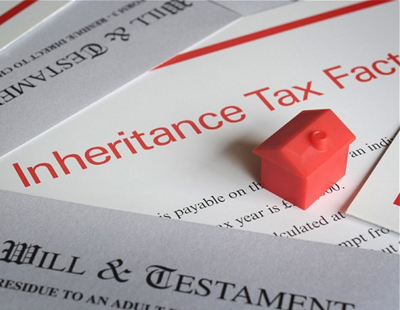Budget 2017 wishlist: Expectations from the property sector
03-07-2017

Looking ahead to the Spring Budget this week, the Chancellor Philip Hammond will be obliged to face up to the implications of last June’s EU referendum vote, as well as address issues surrounding business rates, reliance on consumer spending and government borrowing.
But leading property professionals believe that the upcoming statement is also a prime opportunity for the Chancellor to boost activity in the housing market, which continues to be held back by the previous Chancellor George Osborne’s deeply unpopular tax reforms.
“After the anti-climax of the housing white paper announcements last month, I hope the Chancellor takes this opportunity to introduce housing policy reform that will actually be effective in supporting this core pillar of our economy rather than just issuing regurgitated sound bites,” said Simon Gerrard, managing director of Martyn Gerrard.
The former president of the NAEA wants to see radical measures introduced to fix what he described as a “broken housing market”.
He continued: “There is a severe lack of homes being built, simply because there is not enough available land. The government could fix this in one swift move – by imposing a capital gains tax moratorium on land sales for three years. This would provide those sitting on land with an incentive to sell, freeing up land for development that is so desperately needed.
“We need more homes under construction and this moratorium could be a simple way for the government to move towards achieving this and meeting some of the targets they consistently fail to hit.”
There are various taxes that key industry figures would like to see addressed, but above all else, the overwhelming majority want the government to deliver a U-turn on stamp duty hikes.
Stamp duty
Housing transactions and prices at the top end of the market are faltering due to stamp duty reforms, while those acquiring additional homes, including buy-to-let properties, are being harshly penalised by having to pay a 3% stamp duty surcharge, and so understandably property professionals are calling for the government to reverse the trend for the sake of the wider housing market.
Jason Rishover (below), CEO at the Heronslea Group, is among those that would welcome a reduction or suspension in stamp duty in the Budget spring statement.

“We were very disappointed it was not addressed last year [in the Autumn Statement]”, he said. “Since the hikes were imposed back in December 2014 nationwide sales have dropped significantly.”
Land Registry figures show that the stamp duty hike has had a particularly adverse impact on sales volumes in London.
“Since December 2014, when the last review was introduced, we have witnessed a steady and more recently a severe decline in the volume of property transactions, especially in London and there is unquestionably a plethora of related industries and trades which too have been affected,” said Richard Bernstone, director, Aston Chase.
James Robinson (below), general manager at Lurot Brand, concurred: “Without exception they [prospective buyers] cite our eye watering taxes as the reason for not moving. The seller feels that stamp duty is a purchase tax so not their problem and buyers are refusing to pay the seller’s price as well as the extra stamp duty.
 “And when we do get agreement we see sales fall through when the transaction costs are calculated. These run into many hundreds of thousands of pounds, occasionally millions, making the move financially unjustifiable and creating an impasse that has reduced transactions by 40% in just three short years.”
“And when we do get agreement we see sales fall through when the transaction costs are calculated. These run into many hundreds of thousands of pounds, occasionally millions, making the move financially unjustifiable and creating an impasse that has reduced transactions by 40% in just three short years.”
Like most of the industry, Camilla Dell (below), managing partner of Black Brick, would also like to see a reduction in SDLT at the top-end of the market, as it is not just stalling activity levels at this end of the market, but also pushing more buyers into the sub-£1m bracket.

She explained: “Prior to the reforms, someone who has £2m to invest would have likely bought a single property. A £2m property would carry stamp duty of £153,750 if the buyer is buying their first and only property, but a whopping £213,750 if the property is being bought as a second home or an investment property.
“While two £1m properties would be taxed at £43,750 each if the buyer is buying their first and only home or £73,750 if the property being bought is a second home or investment, encouraging our £2m buy-to-let investor to buy two £1m properties and save £66,250 in stamp duty.
“This creates more competition at the lower end of the market.”
Trevor Abrahmsohn of Glentree Estates agrees that “vulnerable first-time buyers have been further “disenfranchised” due to the SDLT changes, while the markets in the higher value ranges have been rendered “stagnant and illiquid”, as reflected by a 70% reduction in transactions.
He wants the Chancellor to take the “courageous decision” of reducing the higher rate of stamp duty from 12-15% by 3%, or alternatively consider legislating for both purchaser and vendor to split the stamp duty between them.

However, it is difficult to see how politically a reduction in stamp duty could be implemented, according to Mark Parkinson (left) at Middleton Advisors, who believes that another ‘relief’ or exception, rather than reducing the headline rate, may be necessary.
Edward Heaton, founder and managing partner of Heaton & Partners, would also “love to see the Chancellor” scrap the 3% surcharge for second homes and reduce the overall stamp duty rate for high end properties by making it a flat rate, but he also very much “doubts that this will happen”.
Mortgage interest relief
There has been widespread opposition to the pending changes to mortgage interest tax relief ahead of the Budget statement.
The existing rules that permit landlords to offset all of their mortgage interest against tax will, from this April, be phased out over the next three years until 2020/21.
Once mortgage interest relief has been withdrawn altogether, the consequences of Section 24 will mean that landlords will only be able to claim back a basic tax rate deduction of 20% off their tax bill, which will eat into their rental returns.
The Residential Landlords Association (RLA) is among those against the pending changes to mortgage interest tax relief and ahead of the Budget statement has been urging landlords to lobby their local MP over the taxation changes detailed in Clause 24 of the Finance Bill relating to the proposed removal of mortgage interest relief.

The trade body wants the government to halt the implementation of the mortgage interest changes, or at least apply it only to new borrowing for new housing.
Alan Ward, chairman of the RLA, said: “These changes pose real risks for tenants where their landlord is simply unable to afford the extra costs being imposed on them and has no option other than to sell a property.
“Even at this late stage we would call on the government to apply the changes only to new borrowing.”
The National Landlords Association (NLA) has also expressed its opposition to planned alterations to mortgage interest tax relief.
Additionally, the trade body issued three demands, in what is a rather low-key Budget submission, as it recognises that the government’s priorities lie elsewhere, acknowledging that it is ‘preoccupied with Brexit’ whilst the country’s finances are ‘stretched to breaking point’ with ‘multiple demands and unacceptably high debt levels’.
‘Therefore, whilst drawing attention to our past submissions in which we suggested alternatives to Section 24, in this submission we have only asked for three very specific things’, the NLA said in a statement.
The NLA’s demands are as follows:
1. The introduction of a CGT cut or taper: The NLA argues that this will to help facilitate the disposal of poorly performing property and diversify people’s financial investment portfolio. The membership body has sent costings to the Treasury which show this need not be as expensive as some fear.
2. The extension of business asset rollover relief to allow restructuring of portfolios: It argues that this will facilitate increased sales of property and greater mobility between tenures, whilst allowing landlords to reduce the gearing of their portfolios, thereby protecting against market shocks and improving stability.
3. The reintroduction of the Landlords’ Energy Saving Allowance (LESA): New tenancies will not be allowed to be granted for properties with Energy Performance Certificate (EPC) ratings of F or G from April 2018. Following the collapse of the Green Deal, the NLA is urging the government to help mitigate the major capital costs over 300,000 landlords are facing in order to stay in business.
Letting agent fees
The announcement during the Chancellor’s Autumn Statement of an outright ban on letting agents’ fees to tenants is widely viewed as a draconian measure within the letting industry which will have an adverse impact on the rental market.
Unfortunately, it is unlikely that there will be a U-turn on the “catastrophic decision” the Chancellor made in the Autumn to ban lettings agent fees, according to James Davis (below), CEO and founder of online lettings agency, Upad.
He commented: “As predicted, rising rents are already on the cards for long suffering tenants with renting now a necessity, as home ownership is out of reach for most Millennials.
 “Tenants are in some cases already paying up to two-thirds of their salary on rent, whilst salaries have stayed stagnant. This will have wider consequences if people can’t afford to go on holiday, or spend money on entertainment – the mental health of the country will suffer and other industries will bear the brunt of this lack of spending.
“Tenants are in some cases already paying up to two-thirds of their salary on rent, whilst salaries have stayed stagnant. This will have wider consequences if people can’t afford to go on holiday, or spend money on entertainment – the mental health of the country will suffer and other industries will bear the brunt of this lack of spending.
“The government need to realise that they are playing with people’s lives. They need to listen.”
Davis also said he also wants to see an end to landlords being used as a “political football”, as has been the case over the past 12 months through a series of buy-to-let tax hikes.
“Buy-to-let landlords should be enticed through tax incentives, rather than hiking stamp duty, to bring the rental market back into equilibrium,” he said.
Longer tenancies
Research shows many buy-to-let landlords want to provide tenants with long term housing, as it is good for both tenants who want security and landlords who have stable tenancies.
According to the English Housing Survey for 2015/16, the average length that tenants have been in their current private rented property is now 4.3 years, up from 4 years 12 months ago.

To enable more landlords to provide the stability that many tenants need and want, Jean Liggett, founder of Properties of the World, would like to see Hammond commit to longer tenancies for those renting.
“Six and twelve month tenancies as standard are too short,” said Liggett. “They do not give tenants much security and it works against them treating the property as their home as the landlord can end their tenancy in a year’s time.”
VAT
Carol Peett, managing director of West Wales Property Finders is calling for the Chancellor to address the inequality in VAT between new builds (0%) and renovations (rated at 20%) in his Spring Budget.
She suggests a much fairer solution would be to bring it in line with the 5% VAT rate that is chargeable on renovating a dwelling that has been empty for at least two years.
Her vision is that the current housing shortage could be alleviated by encouraging people to extend their living space, enabling a property suitable for a couple to be converted into one able to house a family.
Peett (below) said: “We have personal experience of the gulf between VAT on a new build and on a renovation.

“When we inherited our traditional Pembrokeshire long house it was in dire need of an overhaul. We were advised that it would be cheaper to knock it down and start again, which would have been sacrilege.
“We bit the bullet and undertook a huge renovation programme incurring 20% VAT but many in our position would make the more rational decision and properties such as ours would be lost to future generations.”
Support for housing schemes
With vast sums of money being spent on new residential developments across the country, Daniel Hegarty, CEO and founder of habito, a digital mortgage broker, believes that it is important to ensure those homes are accessible to the broadest cross-section of the population.

He said: “We’ve seen a rise in both Help-to-Buy and Shared Ownership schemes, signalling a greater need at a time when house prices are at their peak.
“We need to see Chancellor Hammond either extend or introduce new help-to-buy or Shared Ownership schemes.
“It holds the key to ensuring the long-term homebuilding strategy reaches first-time buyers and families who have been left out of the windfall created by surging valuations.”
Green Deal
The government announced that it was to going to cease funding for the Green Deal in 2015, spelling the end for its flagship energy household efficiency programme.
The scheme offered cashbacks and incentives on such things as double-glazing, insulation and boilers.
The Department for Energy and Climate Change said it took the decision to protect taxpayers, citing low take-up and concerns about industry standards.
But Sarah Bush (below), director at Cheffins Residential Lettings, would like to see the government bring back funding for the Green Deal.

She said: “Landlords need to be helped to ensure they can afford to make the energy-saving improvements to their properties, which was something that the Green Deal offered.
“Once again, by demonising landlords and not offering any help when it comes to tax breaks or home improvement funding leads to nothing but an increase in outgoings for the tenant.
“The Green Deal was a fantastic tool for both landlords and tenants to help each other and it would be welcomed back by the industry across the board.”
Inheritance tax
In order to maintain the UK as an attractive location for both UK and overseas high net wealth individuals to invest, Greg Limb, head of private client at KPMG UK, believes that there is a great need for the government to focus on introducing changes that are “workable” in practice.
KPMG UK says that it would welcome a delay in the introduction of the new rules currently proposed to come into effect from April 2017 for both non-UK domiciled individuals (non-doms) - including rules for offshore trusts - and inheritance tax (IHT) on UK residential property.
From 6 April, IHT will be chargeable on all UK residential property, regardless of ownership structure. These new IHT rules affect all non-dom individuals whether they are resident in the UK or not.

Anyone who currently owns UK residential property through a company incorporated outside the UK or other opaque vehicle will be liable to IHT on the value of such property in the same way as UK domiciled individuals.
This will apply to all UK residential property whether it is occupied or let and of whatever value.
In the past, UK property held in a company incorporated outside the UK (possibly held in a non UK resident trust) was not a UK asset for IHT purposes and therefore, for non-doms, not subject to IHT.
“There is much uncertainty around these new rules with no clarification expected until publication of the Finance Bill 2017 on 20 March,” said Limb.
But overall, most expectations are that this is likely to be a reasonably low key Budget for individuals, according to Limb.
He explained: “Personal allowances, tax thresholds and other changes to be introduced from 6 April are already confirmed, including restrictions to finance costs for non-corporate landlords.”
Summary
In the Autumn Statement, the Chancellor had an opportunity to use his speech to bolster activity in the housing market, but failed. Let’s just hope that next week’s announcement is not another missed opportunity to help tackle Britain’s housing crisis by reversing stamp duty changes, withdrawing mortgage interest relief proposals for buy-to-let landlords, reconsidering the proposed ban on letting agents’ fees, providing fresh assistance for existing homeowners, particularly downsizers, as well as introduce further measures to boost housebuilding and rejuvenate old housing stock by bringing long-term empty properties back into use.
Now that key property industry figures have put forward their reasonable suggestions, it’s over to you, Mr Hammond.

